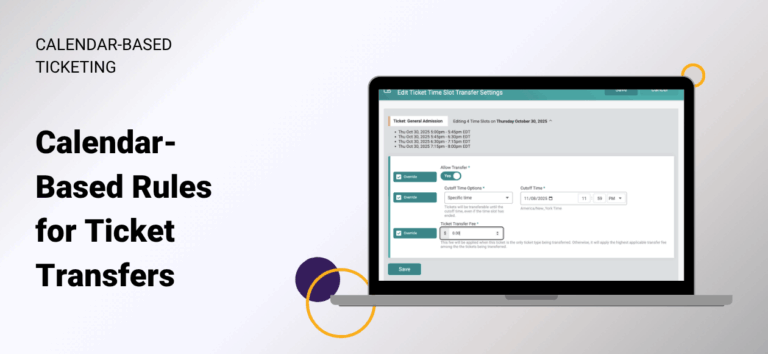TicketSignup now offers calendar-based rules for self-serve ticket transfers, giving event directors precise, date and time slot-specific control over transfer settings. This enhancement builds on our existing timed entry transfer capabilities. Importantly, calendar-based transfer rules make it simple to adapt policies in real time whether you’re managing a rainout or last minute cancellation.
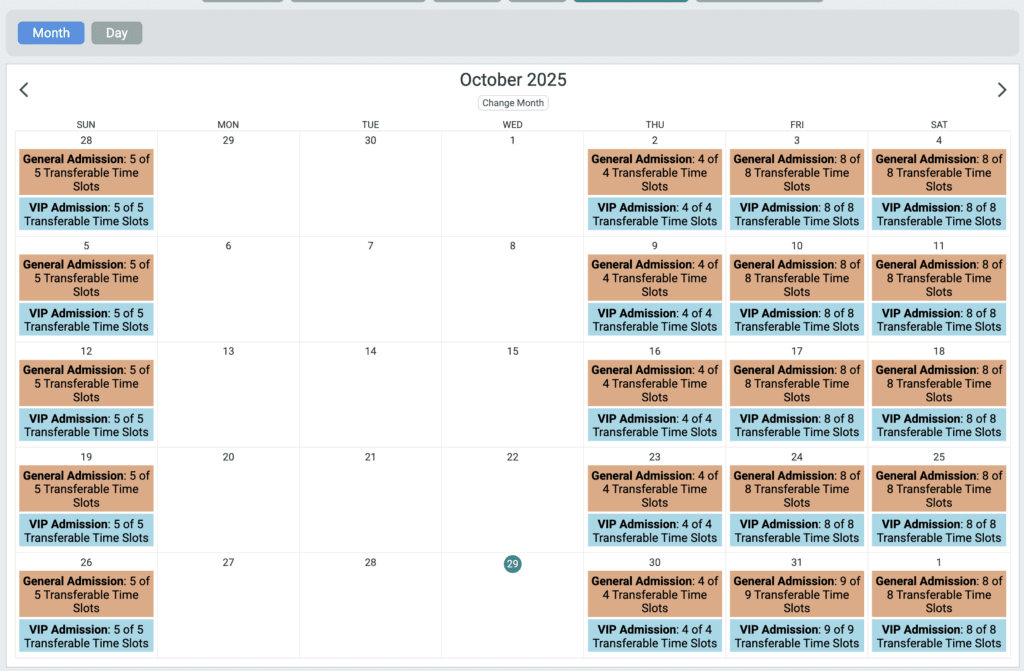
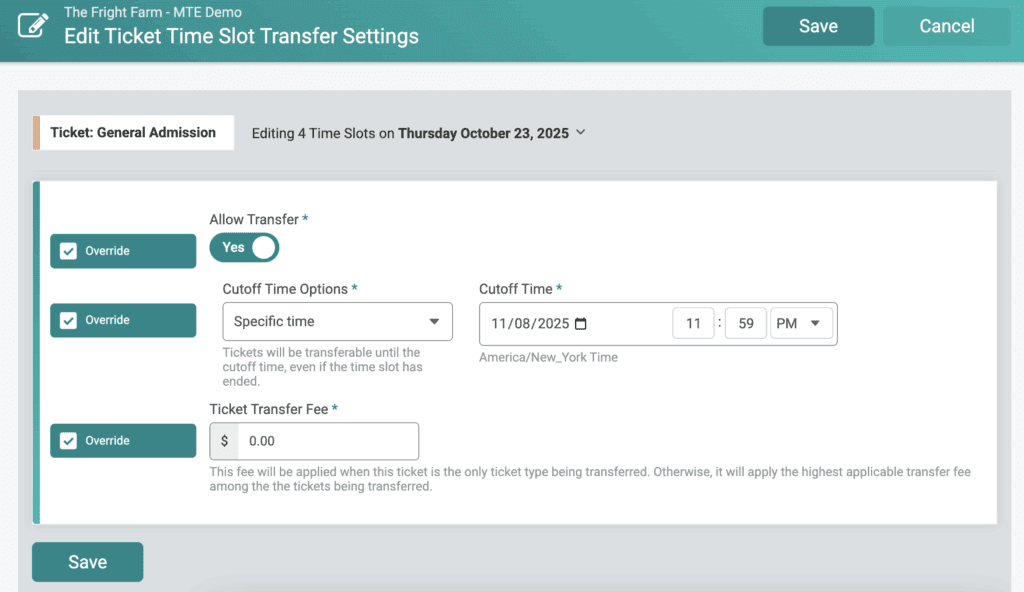
Previously, self-serve ticket transfers followed a single set of global rules. For example, allowing all transfers until the date of the ticket with a $5 transfer fee. Now, with calendar-based rules, you can override those global settings for specific dates or time slots directly from the Schedule.
How to Set Calendar-Based Rules for Ticket Transfers
First, you must enable global transfers for tickets. Click Ticket Transfers from the Schedule or navigate to Tickets >> Ticket Management >> Ticket Transfers. Then click Calendar Setting.
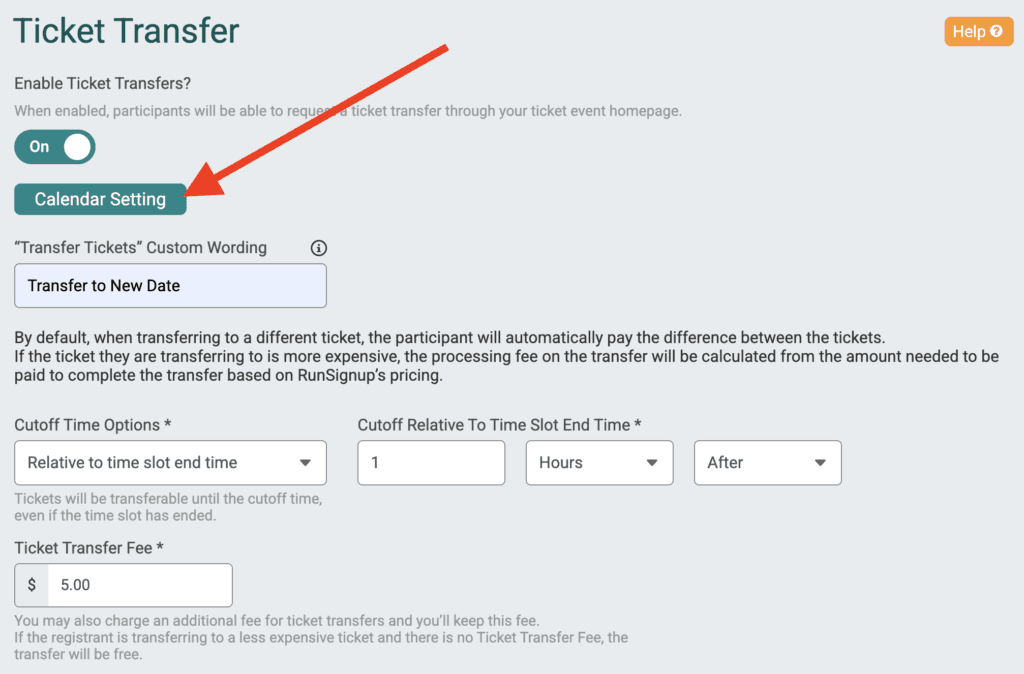
The month view provides an overview of which dates and time slots have ticket transfers available.

Select a date to set custom rules. For example, let’s say October 30th is rained out. The event can change the default transfer rules to allow transfers until the last date of the event for free. This makes customer service easy and reduces refund requests and chargebacks. Click Edit Full Day for a ticket type.
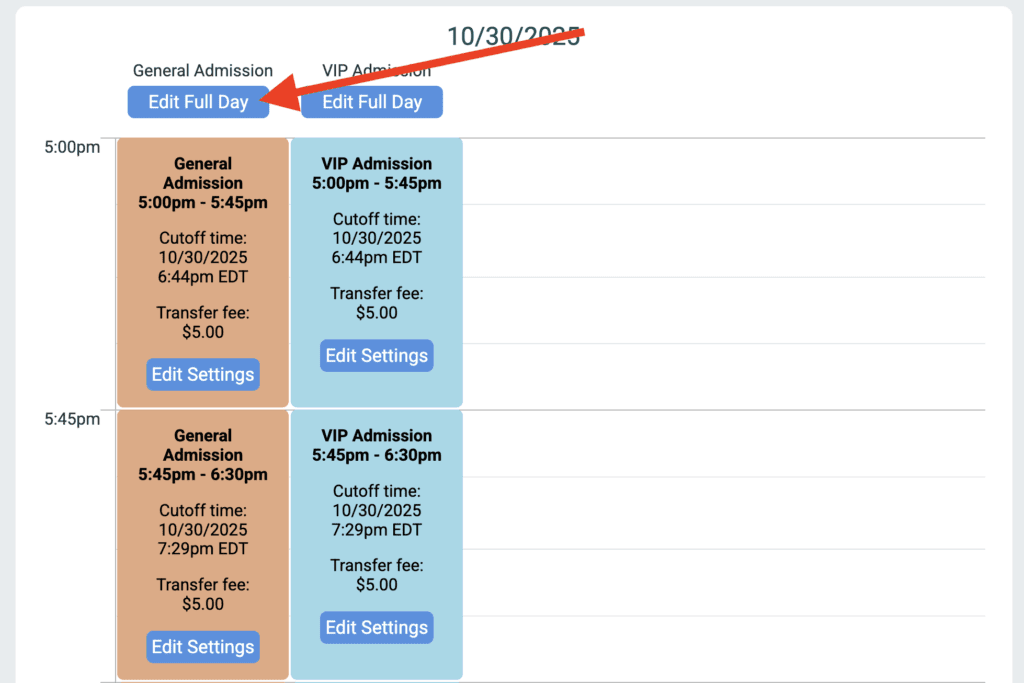
Next, adjust the transfer rules. There are 3 adjustable options:
- Allow Transfers: Yes or No
- Cutoff Time: Set a rolling or fixed date. In this case, the last date the event is open.
- Ticket Transfer Fee: Adjust the transfer fee. In this case, transfers for ticketholders on this date will be free.
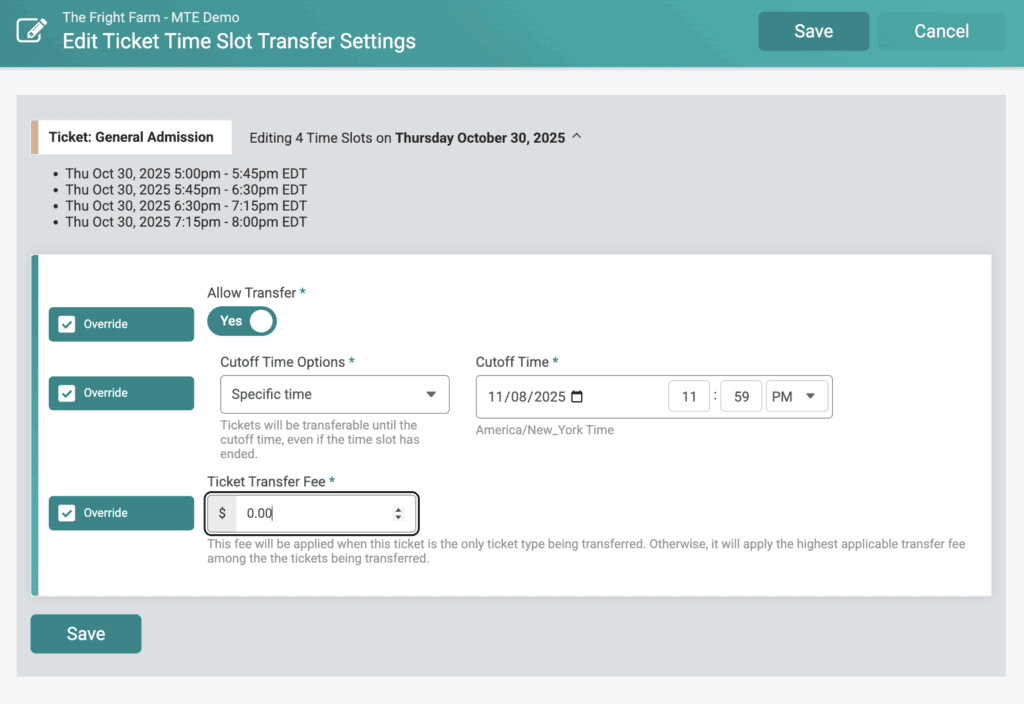
Then repeat for each ticket type. In addition to editing transfer rules for a full day, you can also edit per time slot and ticket type, giving even more granular control.
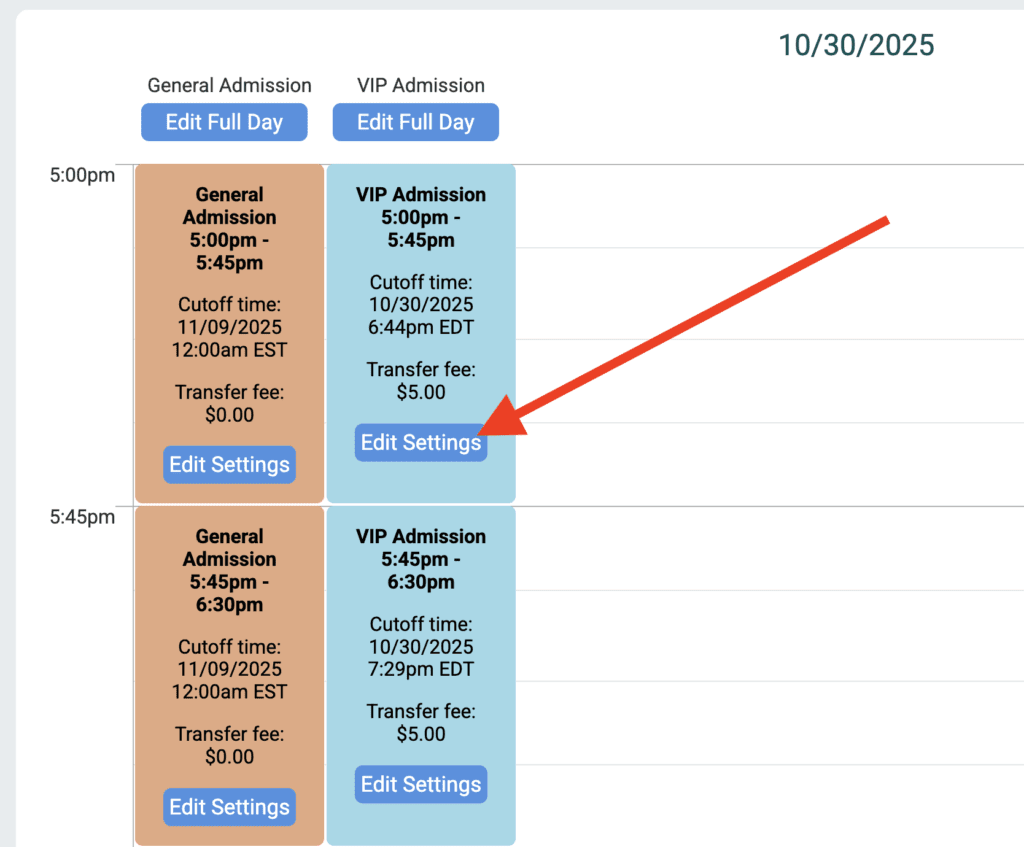
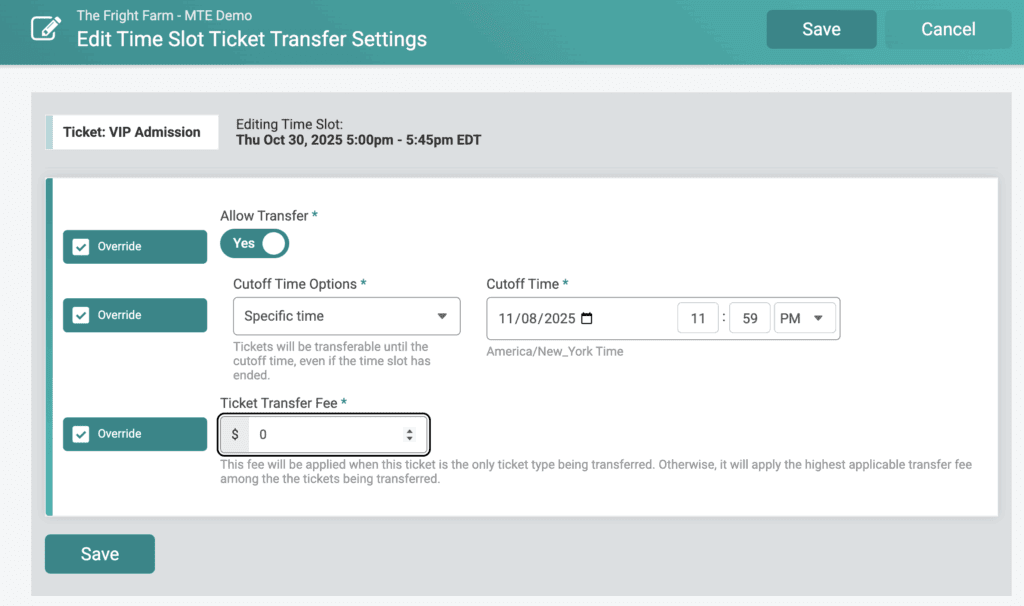
Empower Attendees, Protect Your Operations
Calendar-based transfer rules balance flexibility with control for timed entry events. You empower attendees to move their tickets when needed while still setting boundaries that protect revenue and event flow. This improves satisfaction, reduces refund requests, and helps keep your operations running efficiently.
